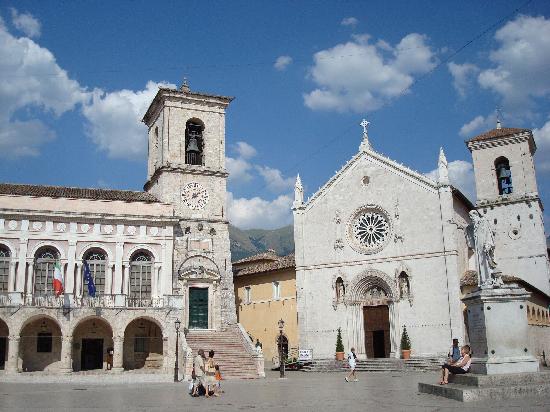Many cults cause a loss of identity or a formation of a bent identity.
We have seen this in American history, as well as in European history.
St. Benedict's genius was that his Rule is not cultic. One is free to leave and to be one's self in monasteries, if one is called to this lifestyle. That is key, by the way. One must be called to be formed into the person God intended one to be.
One reason why convents and monasteries do not accept older people, except in unusual circumstances, is this very problem of loss of identity. A person who has been in the world as a lay person for a long time has found his or her identity in that environment.
A twenty-something person has not yet been completely formed and, therefore, can cooperate with methods of formation. Such is the wisdom of early vocations to both the religious life and the priesthood.
In Medieval or even ancient times, life for the lay person was not drastically different from monastic settings. Apprentices were under obedience to their masters and women under much more strict obedience to their fathers and eventually, husbands. The standard of living for most was to similar that movement from one type of poverty or simplicity to another would not cause a lack of identification. Even the nobles, such as Bernard of Clairvaux whose saintly mother brought up her entire family as Catholics living a simpler lifestyle than most "upper classes" today, could become saints.
But, the loss of identity is not the same as formation, obviously.
Many Catholics today are upset with the present pope. This is partly because these Catholics do not know who they are as Catholics and have relied on exterior authority for identity.
That is what children do until they grow up, finding,creating their own identities in and with God.
The cult of personality denies a person the chance to grow up into the identity God has designed for them.
The is one of the serious problems of cults. The reliance on a charismatic person determines identity for the group. How painful it is to realize that adults have not "found themselves" in these cults and remain at the emotional state of children.
Parents must be especially careful when raising adolescents, for this is the time of identity settling in. One reason I loved teaching junior high students was that this age is like the second "no" stage of two-year-olds.
Many years ago, I had a roommate from a large family in America, wherein the father, now long dead, was over-protecting and over-bearing. His five "girls" did not experience normal physical growth, nor normal emotional growth because he kept them prisoners in his own demanding role of father. He did not want them to grow up.
My roommate did not experience puberty until she was 23 because of this trauma. Finally, she got married and became the woman God intended her to be, but later than most young people.
She was finally released from this imprisonment of childhood.
I have since met others who have been kept from their adult capacities by overbearing parents. These are the peter pans of the world among men and the ever-princesses of the world among women. In all cases, these adults have not reached either emotional or spiritual maturity. The parent is evil in these cases, making themselves into gods and forcing children to be made in their own image and likeness, instead of God's.
They must break away from the maternal or paternal expectations and tyrannies in order to be who they are.
God, the Father, intended us to be His children first. He intended us to grow in His likeness,which is grace. But, the sins of others against some and the sins of society sometimes hold people back.
I shall continue this conversation on loss of identity today and tomorrow.
Let me ask one question of my readers. If you were placed in a concentration camp, would you be able to keep your identity?
I shall answer how one can do this in the next posting.

